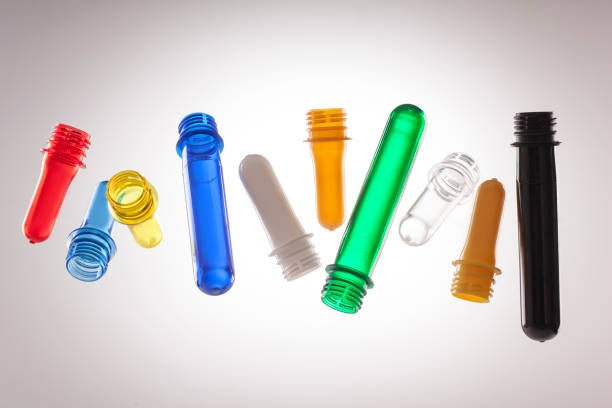Polyethylene terephthalate (PET) belongs to the family of polyesters. It has a semi-crystalline form when stable. It is recyclable and shows resistance to impact, moisture, alcohols, and solvents. It is among those plastics which are an important part of your everyday life. The polymer finds use in packaging, fabrics, and the textile industry. It is also used in films to mold parts for automotive, electronics, and many more.
Higher strength, heat distortion temperatureVery strong and lightweight & hence easy and efficient to transport
Good gas (oxygen, carbon dioxide) and moisture barrier properties
Excellent electrical insulating properties
Broad range of use temperature, from -60 to 130°C
Low gas permeability, particularly with carbon dioxide
Suitable for transparent applications, when quenching during processing
It doesn' t break or fracture.
It is recyclable and transparent to microwave radiation.
Excellent resistance to alcohols, aliphatic hydrocarbons, oils, grease and diluted acids
Moderate resistance to diluted alkalis, aromatic & halogenated hydrocarbons
lower impact strength, lower moldability. PET in amorphous form is easily affected by boiling water, alkalis and strong bases. At high temperatures (>60°C), it can easily be attacked by ketones, aromatic and chlorinated hydrocarbons and diluted acids and bases.
Polyethylene terephthalate can be easily processed by injection molding and extrusion. It is generally extruded to produce films and sheets and can be later thermoformed. Blow molding is generally used to produce transparent bottles. Recommended drying time is 2-4 hours at 120°C before processing. Up to 25% regrind can be used.
The blow molding process works by reheating a pre-molded PET preform. It is then automatically positioned into a mound. Extrusion- and stretch blow molding can be used to fabricate polypropylene bottles.

PET injection molding is one of the very important technologies for plastic processing. Since it is a hygroscopic material, it must be dried to a moisture content of 0.05% or less. This allows it to create a non-crystalline transparent preform. If the moisture content is too high, the PET molecular chains can thermally decompose. This reduces the physical and mechanical properties as well as the crystallization rate. This thereby impacts the quality of the product.
This polyester is a heat-sensitive material with a narrow forming temperature. During the process, if the temperature is:
Too low – It is not good to make plastic parts. Depression and lack of material defects can occur.
Too high – It can cause a spill, nozzle salivation, and deep color change. It can also decrease mechanical strength and cause degradation.
Polyethylene terephthalate is generally extruded to produce films and sheets. After extrusion, they can be thermoformed for food packaging applications. Its extrusion temperature ranges between 270-290°C.
Polyethylene Terephthalate is 100% recyclable. It is the most recycled plastic worldwide. It can be easily identified by its recycling code
Heat treatment of recycled PET flakes removes any volatiles making them safe. They meet the requirements to be safe for direct food contact.
Luoyang Dema Import & Export Co., Ltd. aims to provide high-quality, cost-effective products for global factories, plastic product manufacturers, and material distributors. Luoyang Dema Import & Export Co., Ltd. provides the best PP, PE, PVC, AVE, ABS material solutions for plastic product manufacturers, wholesalers, distributors, distributors, factory owners, processing workshops, etc.
If you are looking for general plastic materials, please feel free to get the latest prices and quotations from Luoyang Dema Import & Export Co., Ltd. The sales team will reply within 48 hours.
